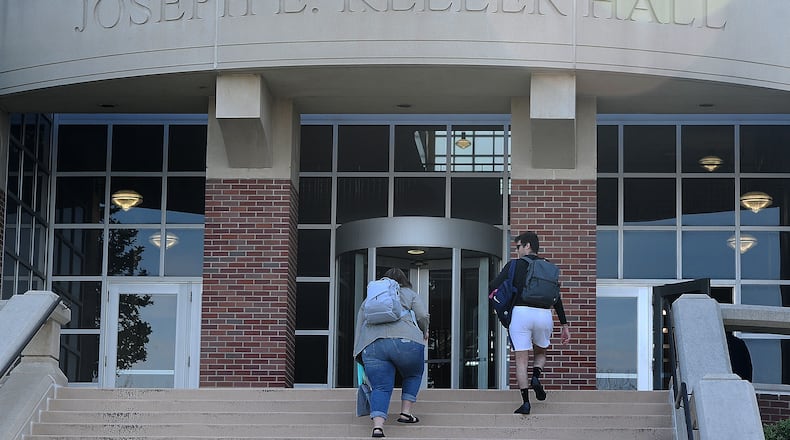Kim Everhart, director of the Office of Financial Aid at Wright State University, said WSU has gotten about 30 corrections so far. The university plans to communicate further with students about corrections, Everhart said.
The U.S. Department of Education, which administers the FAFSA, said more information will be sent out to those who are in an “action required” status.
The timing is critical. Under the traditional college admissions calendar, many universities notify students whether they got in and what their financial aid package will be around April 1, and students make their final decision and submit a deposit by May 1. But some families are still waiting on financial aid information from schools, or still have to fix errors on their FAFSAs. Many can’t commit to a college without knowing for sure how much they’ll have to pay freshman year.
The new FAFSA was meant to be simpler and it asks fewer questions. But the form wasn’t available until January, when it is normally available in October. When it did become available, many people were unable to access it due to a slow website.
The U.S. Department of Education, which administers the FAFSA, said last week that up to 16% of the FAFSA applications submitted require some kind of correction. Common corrections include missing a student’s signature, a parent’s signature, consent and approval from the student to retrieve federal tax information (FTI) or consent and approval from the parent to retrieve FTI.
After FAFSA forms were able to be submitted, the U.S. Department of Education announced in early April they had discovered a problem with how a vendor calculated Institutional Student Information Records (ISIR), a document created after the FAFSA has been filled out.
According to the Department of Education, approximately 30% of FAFSA forms are potentially affected by known processing or data errors. This could include overlap with some FAFSA forms that require student corrections, the agency said.
Credit: Erin Pence
Credit: Erin Pence
More than 7 million FAFSA applications have been submitted, according to the agency.
But several analyses of the data released by the U.S. Department of Education has shown FAFSA completion is down this year compared to previous years — a potential problem for universities and colleges because not being able to afford college is a common reason cited for dropping out of college or not attending at all.
The National College Attainment Network said FAFSA completion is down 40% this year among high school seniors compared to this time last year.
“Again, we recognize the hardship the delays have caused,” Miguel A. Cardona, U.S. Secretary of Education, said in a letter sent to colleges last week. “We see your tremendous efforts, and we appreciate your patience. We want to help every student and every college that requests it — and we’ll continue to do so.”
Ashley Overman, a college counselor at the Montgomery County Educational Service Center, said she is setting up times to be at various high schools this week, including Brookville, Fairmont and West Carrollton, to assist with FAFSA questions. She is also available via Zoom and phone call for people to ask questions. You can book an appointment at calendly.com/ashley-overman.
About the Author



